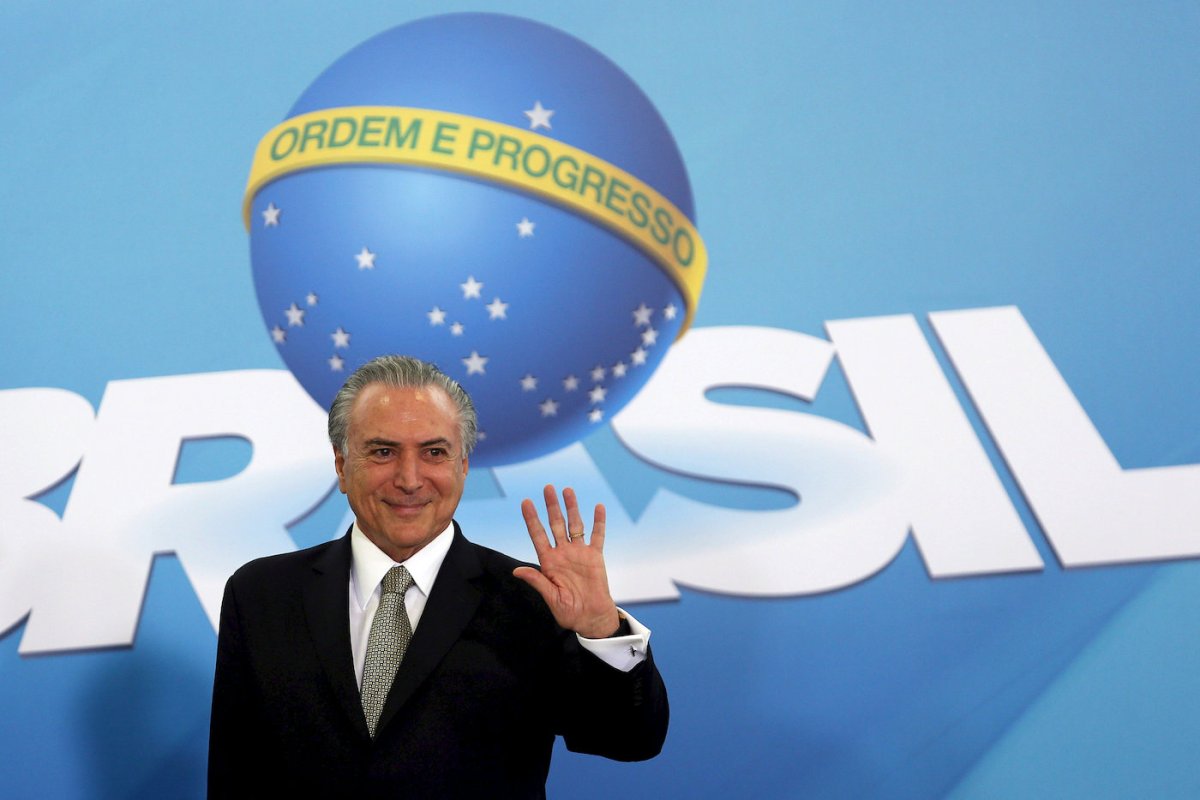By Alonso Soto and Leonardo Goy
BRASILIA (Reuters) – Chinese firms are pushing to revive an $11 billion high-speed-train project to link Brazil’s two largest cities, shelved after the South American nation descended into recession and political turmoil, three sources familiar with the talks told Reuters. China’s ambassador to Brasilia told interim President Michel Temer on Wednesday that Chinese train builders and operators want to participate in Brazil’s biggest ever infrastructure project, delayed repeatedly because of doubts about its viability and concession models, the sources said. Temer was invited to ride the high-speed train connecting Shanghai and Hangzhou next month during a G20 summit when he will discuss the project in bilateral talks with Chinese President Xi Jinping, a Brazilian presidential aide said. “The Chinese are working hard to revive the project,” said the aide, who asked for anonymity because he was not allowed to speak publicly. “Brazil is not convinced yet, but is supportive of the idea.” A spokesman with the Chinese embassy in Brasilia said he did not know the content of the discussions between Temer and ambassador Li Jinzhang. Li did not immediately respond to email requests for comment. Temer’s press office declined to comment.
The project linking business hub Sao Paulo with Rio de Janeiro was seen as a big step in Brazil’s quest to join the club of developed nations when it was first proposed in 2010, when the economy was booming. The original plan was to have the high-speed rail link ready in time for the Olympics, now under way in Rio.
In 2013, the government delayed a tender for the project for the third time because of lack of interest as builders complained about the concession model.
When the economy started to sour in 2014 and then President Dilma Rousseff faced a rebellion of her allies in Congress the project was forgotten, seen as too expensive and difficult to carry through. Now with its economy mired in recession, Brazil would have to rely on private companies to finance the ambitious project that is likely to cost more than the $11 billion once estimated by the government, said Temer’s aide and another government official involved in the discussions. As initially envisaged, the government planned to use state-run banks to partly finance the construction of the 400-km (250-mile) railway.
The high-speed railway was the pet project of Rousseff, who was suspended from office in May pending an impeachment trial in the Senate over accusations she doctored the fiscal accounts to bolster her re-election chances in 2014. Her vice-president Temer took over with the promise of pulling the economy out of what could be its worst ever recession with a mix of market-friendly policies that include the sale of infrastructure concessions. Chinese companies interested in the bullet train include China Railway Construction Corp Ltd, a Brazilian government official said.
The company could not be immediately reached for comment.
Chinese companies believe the project is economically viable, but want the Brazilian government to propose a new concession model before making a final decision, a Chinese official familiar with the discussion told Reuters on condition of anonymity. Major railway players such as France’s Alstom, Spain’s Construcciones y Auxiliar de Ferrocarriles SA and German’s Siemens AG were interested in the original project, Brazilian officials said at the time. ($1 = 3.1399 Brazilian reais)
(Reporting by Alonso Soto and Leonardo Goy; Editing by Daniel Flynn and Adrian Croft)
China wants to revive Brazil high-speed train project: sources

By Alonso Soto and Leonardo Goy


















